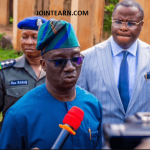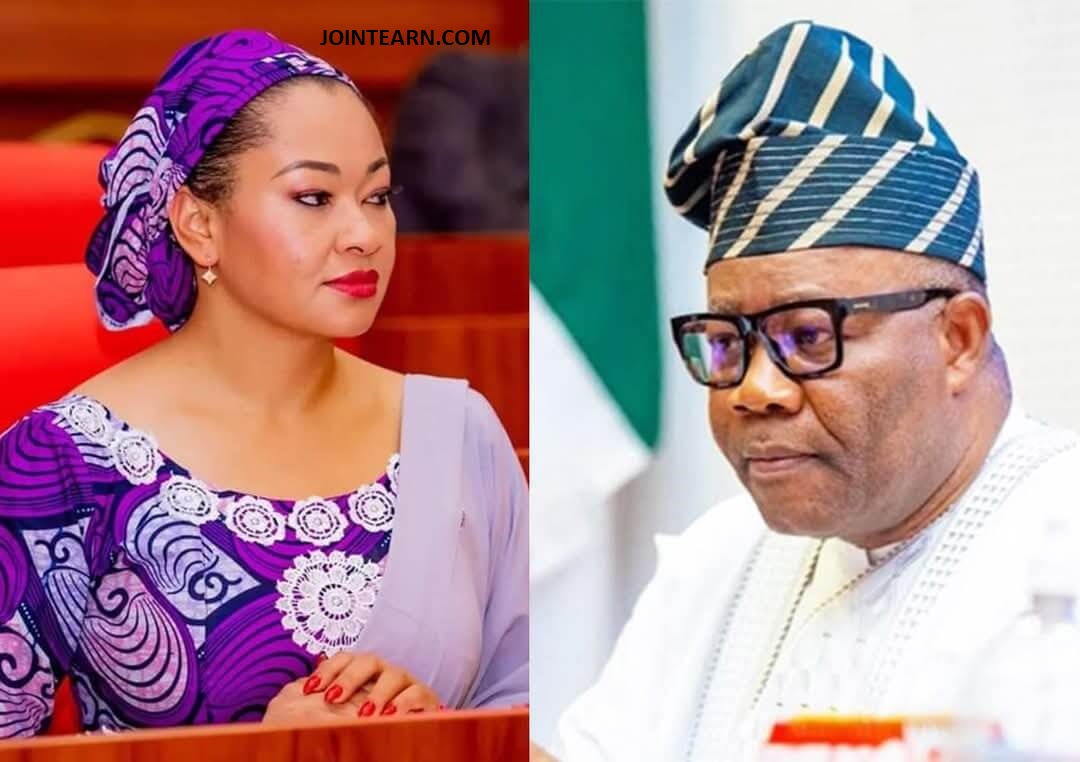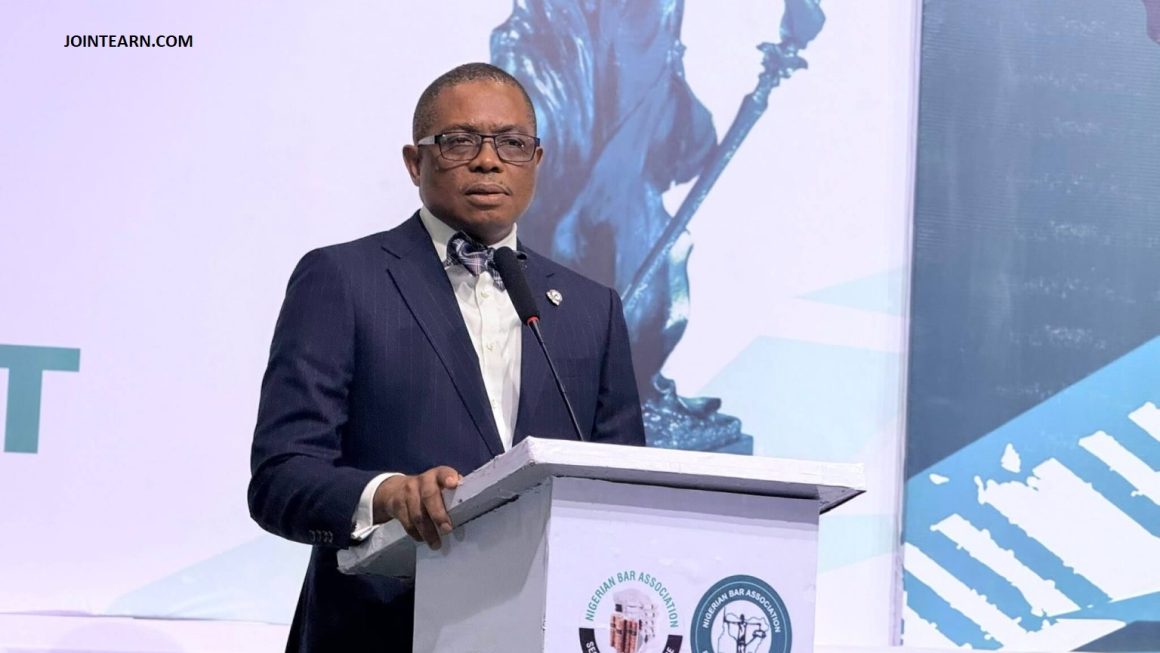In a recent exchange of statements regarding the ongoing legal proceedings involving allegations against high-profile individuals, Senator Godswill Akpabio, Nigeria’s Minister of Niger Delta Affairs, responded to remarks made by legal practitioner Dr. Olisa Agbakoba. Akpabio emphasized that the responsibility for assessing evidence in any legal matter lies solely with the courts, distancing himself from any claims suggesting otherwise.
The exchange follows Agbakoba’s public statements about the legal processes surrounding the case, where he expressed concerns over the handling of evidence and the fairness of judicial outcomes in high-profile cases. Akpabio, in his counter-response, reaffirmed his belief in the judicial system and its independence in making determinations based on facts presented in court.
Akpabio’s Stand: Upholding the Judicial System
Akpabio’s response was pointed and firm, asserting that discussions regarding the merits of a case should be confined to the courtroom. In his statement, the Minister emphasized that any claims, regardless of their source, should not influence the judicial process.
“The assessment of evidence and the determination of guilt or innocence belongs solely to the courts. The judiciary in Nigeria is independent and guided by the rule of law, and as public figures, we must respect that process,” Akpabio said.
He made it clear that while individuals are entitled to express their opinions on various matters, such discussions should not interfere with or prematurely conclude any legal proceedings. Akpabio’s comment underscores the importance of preserving the integrity of the justice system, particularly in cases that attract significant public attention.
The Senator’s remarks were interpreted as a defense of the judiciary’s autonomy and a call for restraint when engaging in discussions about legal matters outside the court. His position is clear: the court’s judgment should be the only final word on legal matters, particularly when it involves the delicate balance of justice and fairness.
Agbakoba’s Concern and Criticism
Dr. Olisa Agbakoba, a prominent lawyer and former President of the Nigerian Bar Association (NBA), had previously expressed concerns regarding the handling of the evidence in the case. In his statements, Agbakoba alluded to what he described as potential lapses in the judicial process, especially when dealing with high-profile individuals and politically charged cases. He pointed to the role of evidence in shaping the direction of cases and questioned whether the current system was adequately equipped to handle such sensitive matters with the needed impartiality.
While Agbakoba’s remarks were made with the intention of urging reforms and improvements in the Nigerian justice system, Akpabio’s response indicates that any assertions or conclusions about evidence must be left to the judicial authorities. According to Akpabio, it is the responsibility of the courts to scrutinize evidence presented during trials and make determinations that are in line with the law, free from external pressure or public opinion.
Legal Precedents and Judicial Independence
Akpabio’s defense of the court’s role in evaluating evidence highlights a critical issue in Nigerian jurisprudence: the need for judicial independence. The Nigerian Constitution guarantees the independence of the judiciary, ensuring that judges and courts are free from external interference. This provision is fundamental to the administration of justice, particularly in cases involving powerful individuals or political figures.
Legal experts have long pointed out that the proper administration of justice requires that legal decisions be made solely based on the facts presented in court. When external opinions or pressures influence judicial proceedings, it undermines the fairness of trials and can lead to miscarriages of justice.
Akpabio’s remarks underscore the necessity for all stakeholders in the legal system, from lawyers to the general public, to respect the sanctity of the court’s role in determining the truth. In cases that attract significant public interest, it is crucial that the judiciary remains unaffected by the noise around the case and operates solely on the principles of law and evidence.
The Role of Public Figures in Legal Matters
The interaction between legal experts, public figures, and the justice system is always a delicate one. Public figures such as Akpabio and Agbakoba often find themselves in the spotlight when legal matters involving prominent individuals are discussed in the public domain. While both are entitled to their views on legal matters, their statements can have a profound impact on public perception of the case and, in some instances, influence the attitudes of the general populace toward the justice system.
Akpabio’s comments served as a reminder of the importance of responsible discourse, particularly when it comes to the influence of public figures on ongoing legal proceedings. He encouraged Nigerians to allow the courts to carry out their work without the cloud of public opinion hanging over the process.
However, Agbakoba’s concerns reflect a broader issue in the Nigerian legal system: the need for reforms to ensure the swift, transparent, and effective handling of cases, particularly those that involve public figures. While Agbakoba’s critiques were focused on the potential shortcomings in the handling of evidence, Akpabio’s stance was clear that any reforms or improvements should be pursued through proper legal channels and not through premature judgments.
Conclusion: A Call for Respecting the Rule of Law
In his response to Dr. Olisa Agbakoba, Akpabio made an important statement about the independence of the judiciary and the critical role that courts play in assessing evidence. He reminded Nigerians that the courts, not public figures or external influences, are the final arbiters in determining the outcome of legal cases.
This exchange serves as an important reminder for all citizens to respect the judicial process and allow legal matters to be resolved through the proper channels. As Nigeria continues to navigate its legal challenges, the importance of maintaining the integrity of the justice system cannot be overstated. The balance between the need for reform and the necessity of a fair trial based on the law and evidence is crucial to ensuring that justice is served for all.












